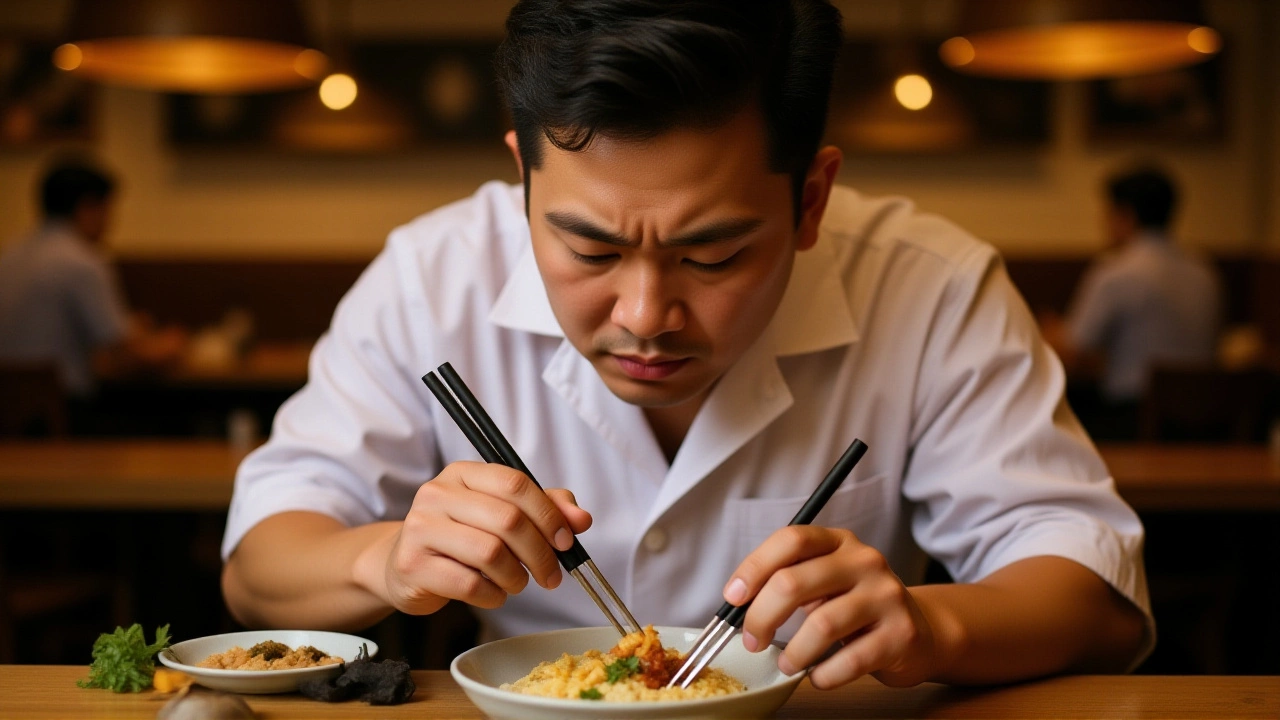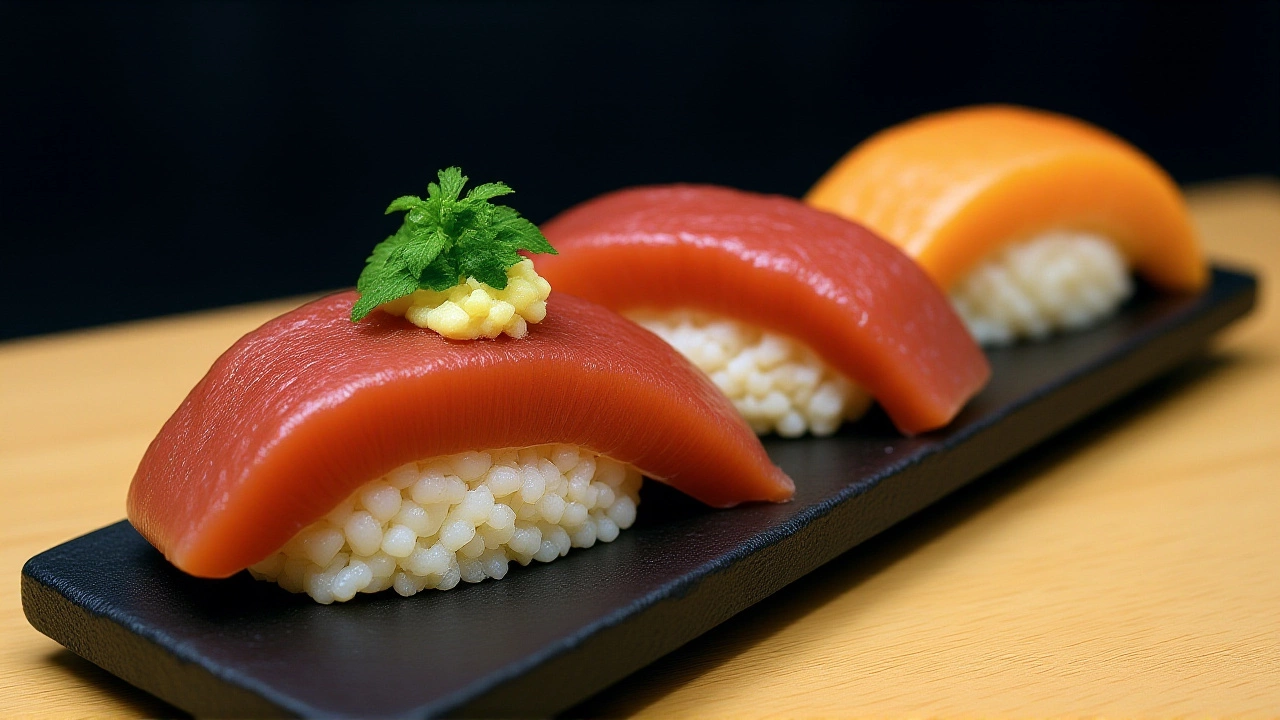When the best sushi in Boston isn’t just about fresh fish—it’s about smoke-wrapped delicacies, flaming rolls, and chefs trained by legends—the city’s dining scene just leveled up. In 2023, multiple culinary authorities converged on Greater Boston’s sushi landscape, and the results aren’t just impressive—they’re astonishing. From the hushed, intimate counters of Wa Shin to the buzzing bar at Uni, Boston’s sushi game has gone from regional favorite to national contender. And it’s not just one or two spots. It’s a whole ecosystem of precision, passion, and personality.
The Omakase Elite: Where Tradition Meets Innovation
At the pinnacle sits Wa Shin, tucked into 222 Stuart St. in downtown Boston. This isn’t just another sushi bar—it’s an 18-course journey guided by Executive Chef Sky Zheng, who trained under Master Chef Daisuke Nakazawa, the protege of Jiro Ono himself—the man immortalized in Jiro Dreams of Sushi. The name Wa Shin means "harmony of the heart," and every bite reflects that philosophy: seasonal fish, hand-harvested sea urchin, and rice seasoned with a whisper of vinegar, all served with the quiet reverence of a temple ritual. Boston Magazine confirms the connection to Jiro’s lineage, noting how Zheng’s team delivers warmth alongside the precision. This is omakase as performance art—and it’s booked months in advance. Just a few blocks away, Uni at 370 Commonwealth Ave holds its own. The Infatuation calls it a "premier destination" for birthdays, late nights, and special occasions, praising its 10-course omakase where fish is delicately enveloped in smoke. With a 4.7 "Exceptional" rating from over 2,300 OpenTable reviews, it’s not just a favorite—it’s a phenomenon. Regulars don’t just come for the fish; they come for the ritual. The chef’s selection changes daily, and the experience feels personal, almost sacred.The Hidden Gems: Basement Bars and Flaming Rolls
But Boston’s sushi soul isn’t only in the high-end. Down in a basement on Harvard Ave in Allston, Oppa Sushi defies expectations. "A tiny restaurant stowed in a basement," Boston Magazine writes, yet it "continuously exceeds expectations." Their signature "fire Bruins maki"—a shrimp tempura roll served in an aluminum foil boat, literally flaming—has become a cult favorite. It’s not fancy, but it’s unforgettable. You’ll hear the hiss before you see the flame. You’ll smell the sesame oil before you taste the crunch. Then there’s Chiharu Sushi & Noodle on Route 9 in Brookline, where Chef Qun Li has been quietly perfecting his craft since 2017. His "mango and gold leaf-topped house tuna roll" and "Boylston roll" with tamago and lobster salad aren’t just creative—they’re thoughtful. This is sushi that remembers its roots but isn’t afraid to play. It’s affordable, consistently fresh, and packed with locals who know better than to wait for a weekend reservation.The Data Doesn’t Lie: No Relation Tops the Charts
Numbers don’t lie. OpenTable’s 2023 rankings, based on tens of thousands of real diners, reveal something surprising: No Relation, a modest spot in Back Bay, holds the highest rating in the city—a 4.9 "Exceptional" from 178 reviews. That’s not a fluke. It’s consistency. Meanwhile, Douzo Modern Japanese Restaurant and Blue Ribbon Sushi both sit at 4.8, with Douzo drawing over 1,700 reviews and Blue Ribbon—originally from NYC since 1995—offering rare nigiri like Japanese red snapper and amberjack. Blue Ribbon’s lobster-and-caviar roll? "Splurgy," as The Infatuation puts it. But for those who’ve tried it, worth every penny.
The Temaki Revolution and Wagyu Dreams
Don’t overlook Matsunori on Beacon Street. This isn’t your average sushi bar—it’s a temaki revolution. Hand-rolled cones of nori, filled with torched miso-cod that tastes like honey, spicy tuna with fried sweet potato crunch, and A5 wagyu rolls sourced from the owner’s own farm. The restaurant doesn’t take reservations, and by 7 p.m. on weekends, the bar is packed. But you can usually walk in. That’s the magic of Boston’s sushi scene: it’s exclusive without being elitist. You don’t need a reservation to taste excellence—you just need to show up. And then there’s Umami Omakase in Cambridge. Chef Gary Lei, formerly of Uni, transformed the old Hana Sushi space into a dream of progressive Japanese dining. Named Best of Boston in both 2021 and 2023, Umami offers set menus driven by the day’s catch. Their takeout mini-omakase? A revelation for those who want luxury without the sit-down price tag.Why This Matters: Boston Isn’t Just Catching Up—It’s Leading
Ten years ago, Boston’s sushi scene was seen as a step behind New York or San Francisco. Not anymore. Today, the city boasts chefs trained by Jiro’s disciples, restaurants with Michelin-caliber precision, and humble basement bars that serve flaming rolls with soul. The diversity—from $200 omakase to $15 takeout rolls—means there’s no wrong way to experience sushi here. The growth isn’t accidental. It’s the result of a generation of chefs who studied in Tokyo, trained under legends, and chose Boston not as a fallback, but as a canvas. And diners? They’re responding with loyalty, reviews, and packed bars every night.
What’s Next? The Rise of the Local Sushi Culture
Look for more neighborhood spots to emerge in Somerville, Jamaica Plain, and even Quincy. The demand is there. The talent is here. And with Wa Shin and Uni drawing visitors from across the country, Boston is no longer just a city with good sushi—it’s a destination for it.Frequently Asked Questions
How does Wa Shin compare to Jiro’s restaurant in Tokyo?
While Wa Shin doesn’t replicate Jiro Ono’s legendary Tokyo counter, it channels the same philosophy: extreme attention to detail, seasonal sourcing, and a quiet, reverent dining experience. Chef Sky Zheng trained under Daisuke Nakazawa, Jiro’s direct protégé, and brings that lineage to Boston. The difference? Wa Shin offers a more intimate, slightly warmer service style, and sources many fish locally, making it a uniquely American interpretation of Japanese omakase.
Why is No Relation rated higher than Uni despite fewer reviews?
No Relation’s 4.9 rating from 178 reviews means nearly every diner gave it a perfect score. While Uni has more reviews (2,367), its 4.7 rating reflects a broader range of experiences—some diners find it overpriced or too formal. No Relation’s smaller size allows for tighter consistency. It’s the difference between a symphony orchestra and a chamber quartet: one is grand, the other, perfectly tuned.
Can you really walk into Matsunori without a reservation?
Yes—most nights. Matsunori doesn’t take reservations, and while it fills up fast after 7 p.m. on weekends, the bar seats about 10 people, and turnover is quick. Locals often arrive at 5:30 p.m. for a quiet bite or wait out the rush with a drink at the nearby bar. It’s part of the charm: you’re not just eating sushi, you’re participating in a local ritual.
What’s the best sushi spot for first-time visitors to Boston?
For a balanced experience, start with Uni. It offers the prestige of an omakase, the energy of a happening spot, and the quality to impress even seasoned sushi lovers. If you prefer something more casual, try Chiharu in Brookline—affordable, authentic, and packed with regulars. Both represent the best of Boston’s duality: world-class and welcoming.
Are there any new sushi spots opening in 2024?
Yes. Chef Kaito Tanaka, formerly of Oishii Boston, is opening a 12-seat omakase bar in Somerville this spring, exclusively using fish sourced from Cape Cod fishermen. Meanwhile, a new temaki-focused spot called "Nori & Co." is slated to open in the North End in May, bringing a playful, street-food twist to hand rolls. These openings confirm Boston’s sushi scene isn’t slowing down—it’s accelerating.
What’s the most underrated sushi spot in Boston?
Shore Leave in the Seaport. With a 4.7 rating and just 269 reviews, it flies under the radar. But its tuna tartare with yuzu kosho and its house-made pickled daikon are as good as anything in the city. It’s not flashy, but the flavors are layered, the rice perfectly seasoned, and the staff remembers your name. That’s the real Boston sushi secret: the best places don’t need billboards.
